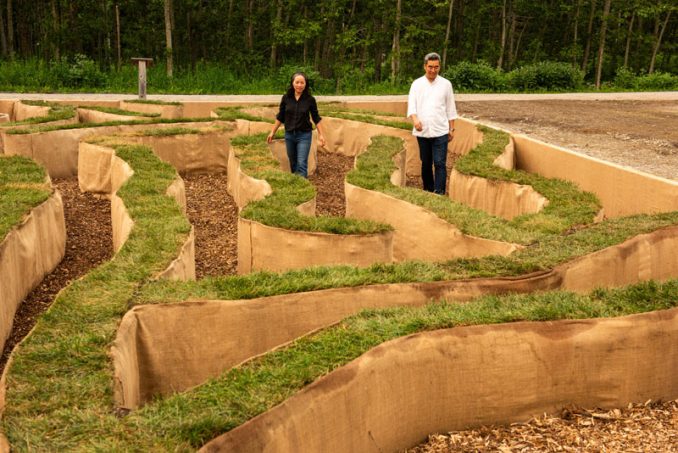The 24th edition of the International Garden Festival, titled RACINES | ROOTS, is now open to the public. This year, Ève De Garie-Lamanque, the event’s Artistic Director, invited designers to imagine a present and a future that is ecologically, economically, and culturally responsible by drawing on the teachings of past generations.
The current edition of the Festival comprises 22 in situ contemporary gardens, including 5 brand-new ones, as well as the stand-alone installations Mer du Vent and Absolues Jardin. Twelve designers from Quebec, Ontario, Sweden and Germany were present for the opening of the Festival, which will run until October 1st, 2023.
Theme | ROOTS
With the advent of the digital age, globalization and the rapid speed of technological advancement that are changing our relationship with time, the physical world and each other, ROOTS rejects the unrooted vision implanted by the industrial revolution to embrace an approach that seeks to be nourished from a common heritage.
The theme counters the forces of homogenization that is part of globalization, incorporating the notion of globality coined by the Martinique poet and philosopher Édouard Glissant (1928-2011). It invites a return to what is essential by integrating the use of native plants, local materials – whether reused or with limited environmental impact –, as well as traditional methods of construction combined with a contemporary vision that embraces both regional communities and ecosystems. ROOTS intends to challenge the status quo and create innovative human-scale environments. It seeks to transcend generations and disciplines.
New Gardens
Le Jardin des quatre colonnes
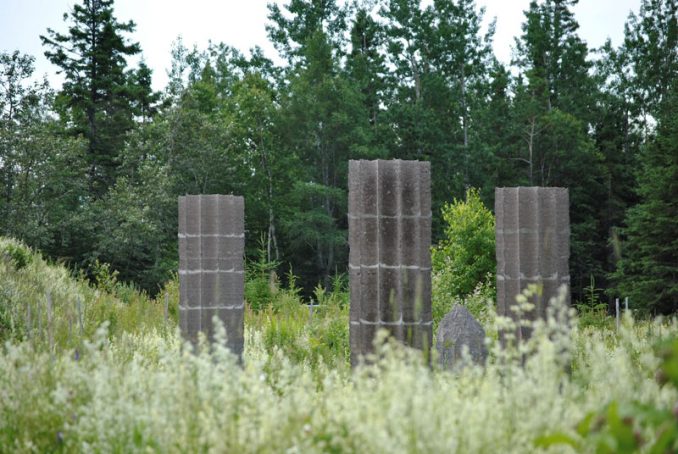
Vincent Dumay, Baptiste Wullschleger | Sweden + France
With a project that is both poetic and a manifesto, we hope that the public will discover solutions for a more desirable and virtuous future. Our intent is to raise awareness of the question of the finite character of our resources. Le Jardin des quatre colonnes is an experience that unfolds through time, where elements built with raw earth within a living environment will evolve freely over the years.
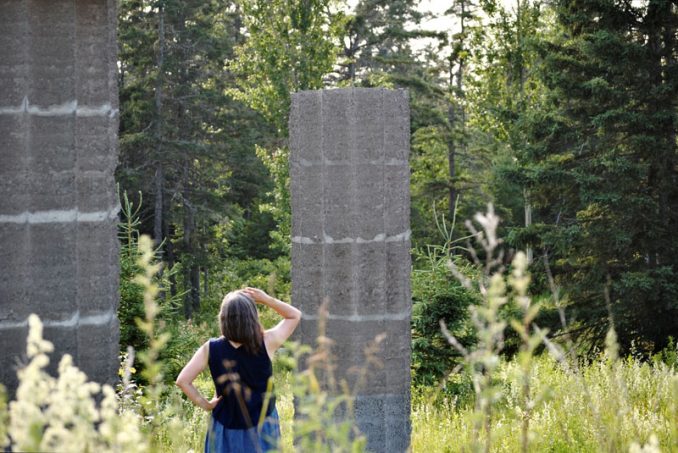
Adobe construction is a technique that consists in compacting soil mixed with moisture in successive layers inside a casing – it makes visible what normally lies hidden beneath our feet. The fluted boles are built using a tubular casing which gives them their specific shape evoking Doric columns.
Maillage
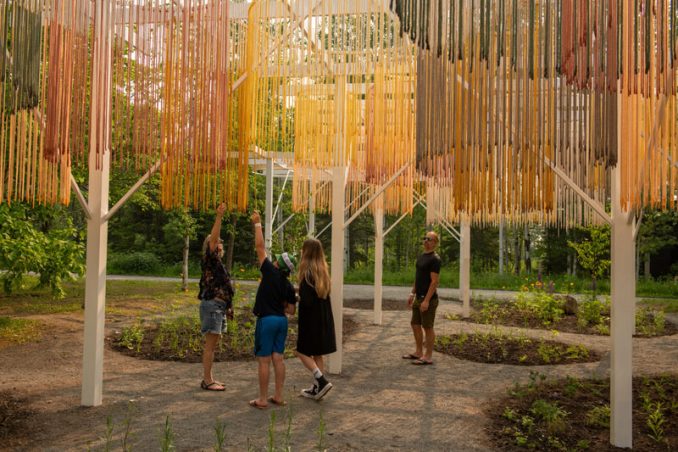
Friche Atelier (Frédérique Allard, Jean-Jacques Yervant, Aliénor de Montalivet) | Quebec, Canada
The use of plants is at the heart of the development of our civilizations. Whether for nourishment, protection, healing or clothing, their multiple applications have allowed populations to survive and prosper.
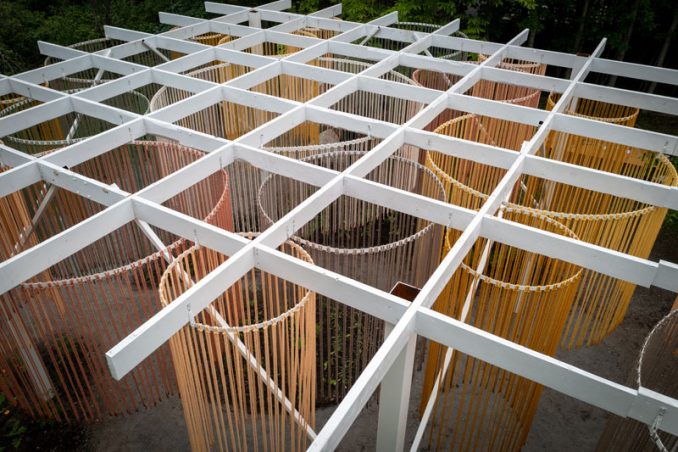
The dyeing properties of plants are known since Antiquity, and their use as a colouring agent for plant and animal fibres represents a millennium-old know-how, exploiting the different parts of a plant (leaves, roots, flowers, fruits…). Maillage explores on a metaphorical level the relation between two worlds, that of the textile, and that of the vegetal.
Matière-Matière
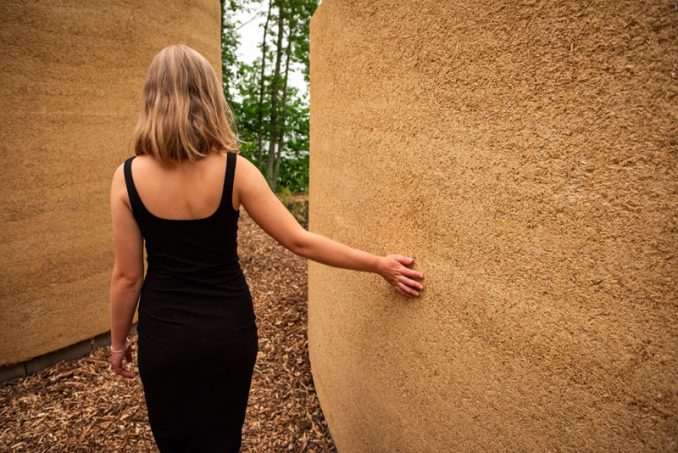
Studio Haricot (Marie-Pier Caron-Desrochers, Tristan Morissette), Rose-Marie Guévin, Vincent Ouellet | Quebec, Canada
Matière-Matière is the intrinsic experience of a tone-on-tone relation (texture upon texture, colour upon colour): volumes emerge like fruits from the site, as extensions of the vegetation. Three walls bend, converge and project themselves, dilating and contracting. The project is an invitation to tactilely feel one’s way through a materiality stripped bare, inside moments of uncanny encounters. This structure of hemp concrete, deposited in the context of a patch of wheat and a carpet of mulch, offers a parallel between the possible transformations of vegetal fibres up to the materialization of the proposed spaces.
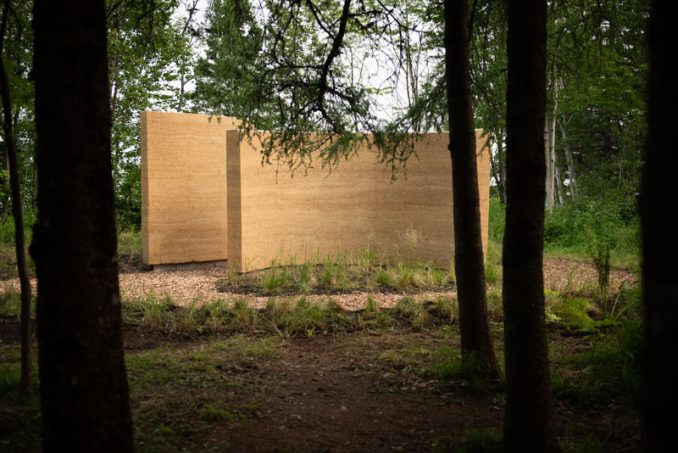
Racines de mer
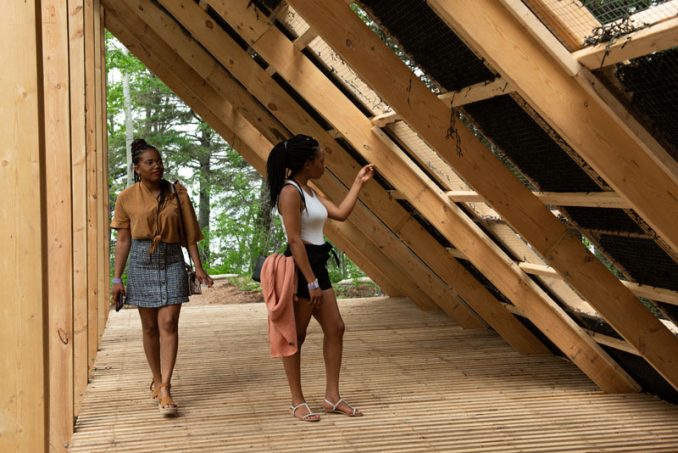
Cassandra Ducharme-Martin, Gabriel Demeule | Quebec, Canada
In a climate similar to ours, on the island of Læsø in Denmark, women built, with the help of eelgrass, a marine plant, the roofs of their houses. Due to the waterproof and fireproof properties of these marine plants harvested on beaches, these roofs have resisted the ravages of time for more than three hundred years.
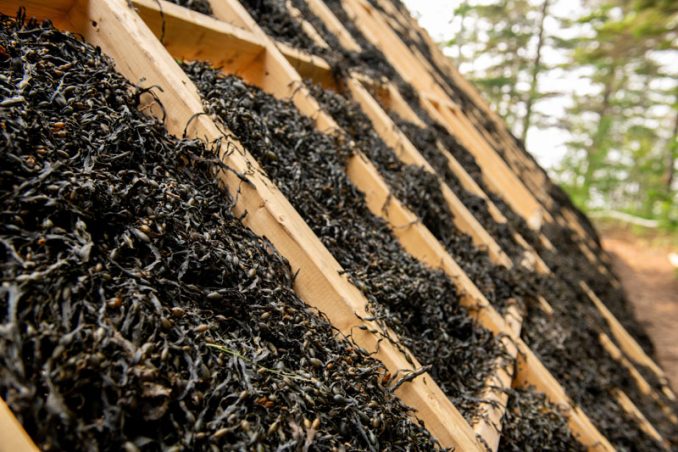
Racines de mer proposes a reflection on the built environment of the future. It offers the visitor the possibility of discovering Quebec’s territory and traditional skills. On the one hand the light wooden frame, left uncovered, celebrates the elegance of this method of construction, a system omnipresent in North America. On the other hand, its roof made of seaweed inspired by those of the island of Læsø exploits the riches of the St. Lawrence River and reveals its dormant potential.
S’Y RETROUVER
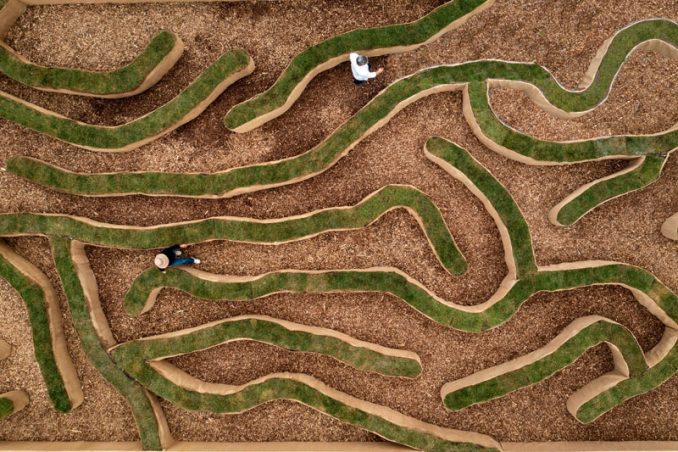
Jinny Yu, Ki Jun Kim, Frédéric Pitre | Ontario & Quebec, Canada + Germany
Visitors are invited to enter a submerged maze: a puzzle with various possible routes and dead ends meant to confuse and challenge those who explore. At the same time, the top of the wall of the trenches, which is at ground level, allows for the possibility of deciphering the pathway with an overall view of the route before entering. Upon entering the subterranean world, visitors reach the first level of the substratum of the root system, and walk around a network composed of earth and white clover representing the pattern of the roots of two trees linked by fungal mycelium.
